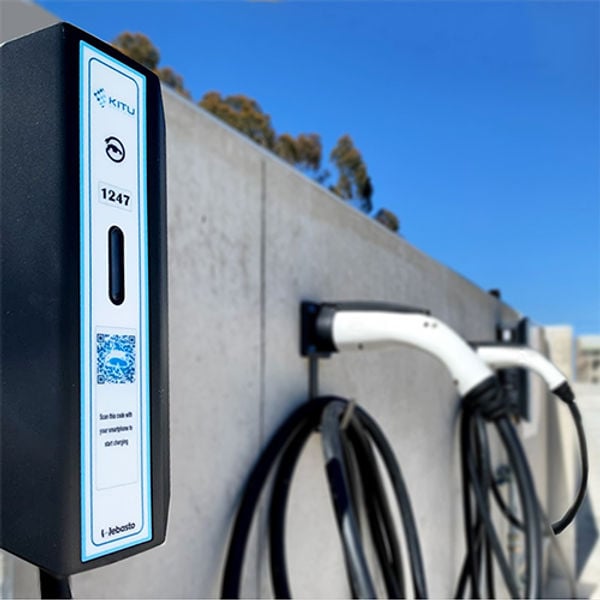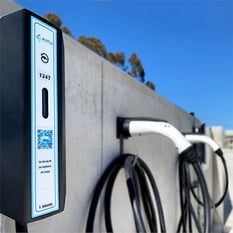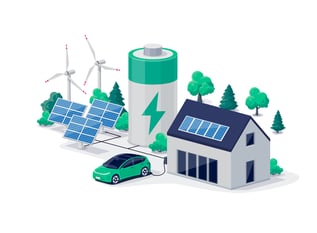Kitu Leads the Way in Intelligent Energy Communication
May 17, 2023

The transformation of the electric grid and transportation is one of the most exciting and consequential changes happening in the world today. These two systems are becoming more closely intertwined, and their combined evolution will have a significant impact on both industries and the broader economy. The adoption of electric vehicles (EVs) is one of the primary ways in which the electric grid and transportation are transforming together. As more people switch to EVs, the demand for electricity will increase, which requires significant investment in the electric grid infrastructure. The electrification of the home is also playing a crucial role in this transformation, driven by the need to reduce greenhouse gas emissions and mitigate climate change.
The adoption of distributed energy resources (DERs) and intelligent energy coordination systems can provide significant benefits for both homeowners and the grid, such as reducing peak demand and helping to integrate more renewable energy into the grid. This transformation is creating new business opportunities for companies involved in renewable energy, smart grid technology, and electric vehicle manufacturing.
One of the primary ways that the electric grid and transportation are transforming together is through the adoption of electric vehicles (EVs).  As more people switch to EVs, the demand for electricity will increase. At the same time, the development of smart grid technology will allow for more efficient management and distribution of that electricity. This will require significant investment in the electric grid infrastructure, including the deployment of new technologies such as advanced energy coordination systems, energy storage systems, and electric vehicle charging stations.
As more people switch to EVs, the demand for electricity will increase. At the same time, the development of smart grid technology will allow for more efficient management and distribution of that electricity. This will require significant investment in the electric grid infrastructure, including the deployment of new technologies such as advanced energy coordination systems, energy storage systems, and electric vehicle charging stations.
The transformation will have a significant impact on transportation. Electric vehicles offer numerous benefits over traditional internal combustion engine (ICE) vehicles, including lower operating costs, improved performance, and reduced greenhouse gas emissions. As more people adopt EVs, the demand for gasoline will decrease, which will have a significant impact on the oil industry. Additionally, the shift to electric vehicles will require changes in transportation infrastructure, such as the construction of charging stations and intelligent management systems.
The electrification of the home is another important factor influencing this transformation. Electrification of the home is the process of replacing fossil fuel-based systems with electric-powered alternatives to meet various energy needs within a home, such as space heating, water heating and cooking.
One of the primary drivers of electrification of the home is the need to reduce greenhouse gas emissions and mitigate climate change. Electrification can help reduce carbon emissions by shifting energy consumption from fossil fuels to electricity, which can be generated from renewable sources such as solar and wind power.
Electrification can also provide a range of benefits from homeowners, such as low operating costs, improved energy efficiency, and increased convenience.  For example, electric heat pumps are more efficient that traditional fossil fuel-based heating systems and can save homeowners money on their energy bills over time. Electric stovetops and ovens can also provide more precise temperature control, faster cooking times, and easier cleanup than gas-powered alternatives. Your electric utility likely offers rebates and incentives to purchase electrified appliance options for your home.
For example, electric heat pumps are more efficient that traditional fossil fuel-based heating systems and can save homeowners money on their energy bills over time. Electric stovetops and ovens can also provide more precise temperature control, faster cooking times, and easier cleanup than gas-powered alternatives. Your electric utility likely offers rebates and incentives to purchase electrified appliance options for your home.
A Rocky Mountain Institute (RMI) study found that an all-electric home can represent a net present cost savings of as much as $6,800 over a 15-year period compared to a mixed-fuel home. The all-electric home not only lowers costs but lowers carbon emissions by as much as 93%.
The electrification of the home is closely linked to the adoption of distributed energy resources (DERs) such as rooftop solar panels, battery storage, and electric vehicle chargers. Coordinating these resources with energy management systems and intelligent charging infrastructure can provide significant benefits for both homeowners and the grid, such as reducing peak demand, providing backup power during outages, and helping to integrate more renewable energy into the grid.
At Kitu Systems, we believe that the future of energy lies in the ability to connect and coordinate a wide range of distributed energy resources (DERs), including solar PV, battery storage, electric vehicles (EVs), and more. In our new blog series, “We Speak Energy,” we will continue to explore the impact of the transformation of the electric grid and transportation, including the commercial impact, the characteristics of a harmonized, grid-native intelligent coordination systems, and the benefits of Kitu’s approach to this intelligent coordination.
Author: Rick Kornfeld, President and Chief Executive Officer of Kitu System's
Interested in hearing more from Kitu Systems? Subscribe below!
